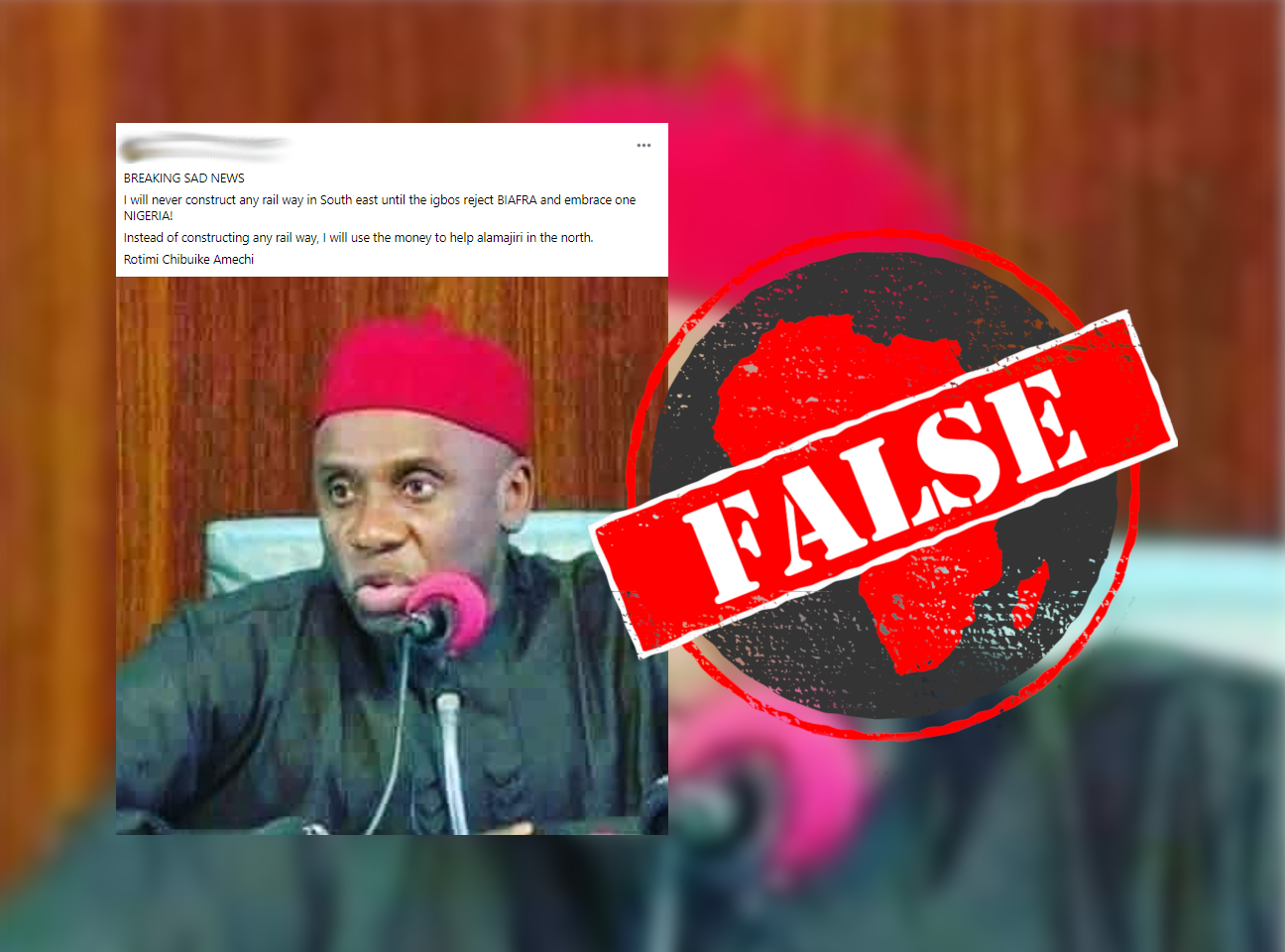Has Nigeria’s minister of transport, Rotimi Amaechi, said no railways will be built in the southeast of the country, unless people give up the idea of an independent state of Biafra?
A Facebook post claims to quote the minister: “I will never construct any rail way in South east until the Igbos reject BIAFRA and embrace one NIGERIA! Instead of constructing any rail way, I will use the money to help almajiri in the north.”
Biafra is a secessionist state, which declared its independence from Nigeria in May 1967. A 30-month civil war followed, lost by the Biafrans in January 1970. Agitations for independence in Nigeria’s southeast have increased in the past decade, led by the Indigenous People of Biafra under Nnamdi Kanu.
“Almajiri” is a reference to children who beg on the streets, mainly in northern Nigeria.
Amaechi has faced controversies over the choice of railway projects approved by the federal government.
In May 2017, the senate asked him to explain why the eastern corridor rail line was excluded from the federal government’s proposal for loans from the Export-Import Bank of China (China Exim Bank). These loans were meant to finance railway projects across the country.
But has Amaechi linked the approval of railway projects in the southeast to ongoing secessionist agitations there?

Old claim, debunked in 2021
Though the July 2021 Facebook post is presented as a breaking news story, a search on Google reveals it is at least a year old.
In July 2020, Amaechi debunked the exact same claim, which circulated on Twitter, and said it was “fake”.
Federal government approved railways in southeast
In March 2021, Amaechi announced the federal government’s approval of the reconstruction of the 1,443-kilometre eastern rail line at a cost of about US$3 billion.
The rail line runs from the coastal Rivers state in the south to northeastern Borno state. It connects 12 other states, including all five states in the southeastern region.
Republish our content for free
For publishers: what to do if your post is rated false
A fact-checker has rated your Facebook or Instagram post as “false”, “altered”, “partly false” or “missing context”. This could have serious consequences. What do you do?
Click on our guide for the steps you should follow.
Publishers guideAfrica Check teams up with Facebook
Africa Check is a partner in Meta's third-party fact-checking programme to help stop the spread of false information on social media.
The content we rate as “false” will be downgraded on Facebook and Instagram. This means fewer people will see it.
You can also help identify false information on Facebook. This guide explains how.


Add new comment